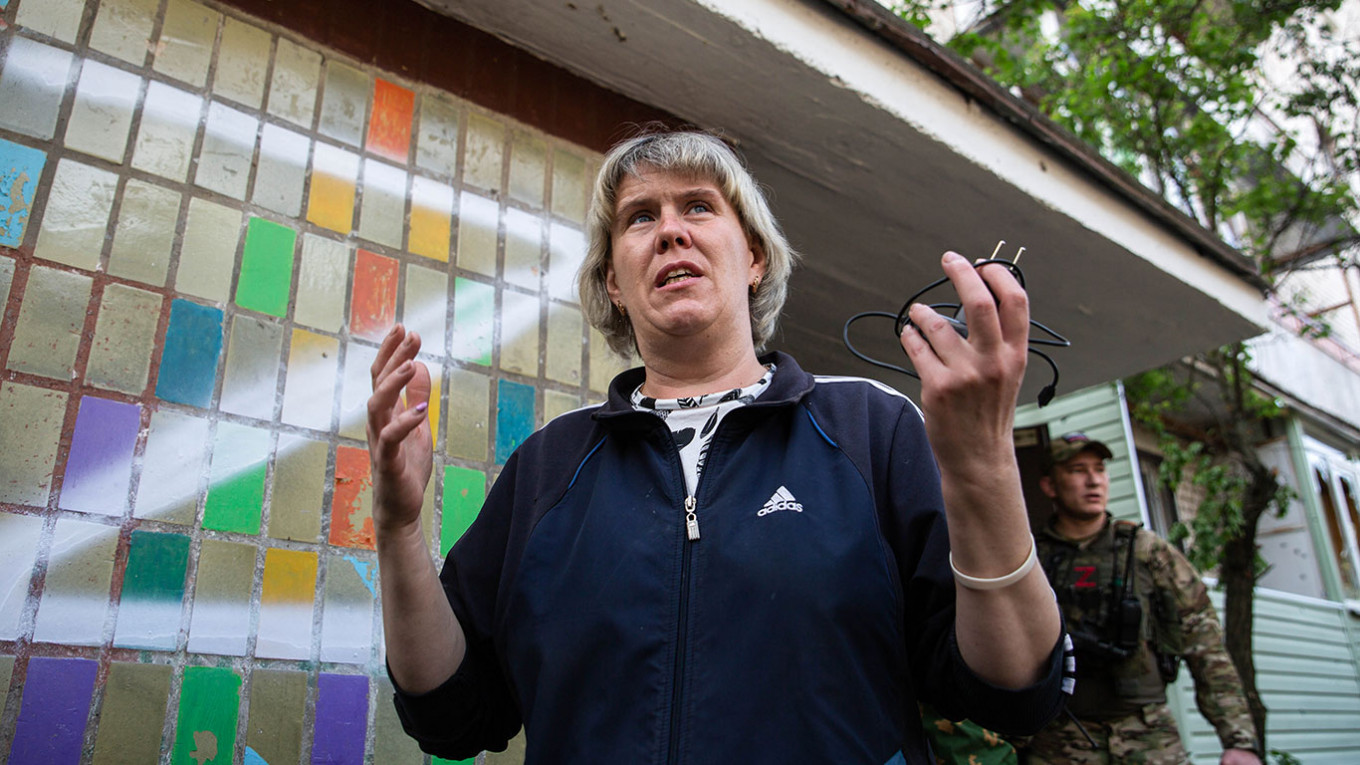
Russian forces on Thursday hammered the last Ukrainian defenses holding a strategic city in the Donbas region as the war approached its 100th day and Washington warned it could still last for months.
Vladimir Putin’s troops have set their sights on capturing eastern Ukraine since Ukrainian forces repelled them from seizing Kyiv after the Russian invasion began on Feb. 24.
Defending the east has come at a high cost for Ukraine, with President Volodymyr Zelensky reportedly admitting that up to 100 Ukrainian soldiers are dying daily.
Russia’s invasion — set to enter its 100th day on Friday — has killed thousands of people and sent millions of Ukrainians fleeing.
The industrial hub of Severodonetsk in Lugansk, part of the Donbas, has become a key target for Moscow, and the local governor said that 80% of the city was already now under Russian control.
“The most difficult situation is in the Lugansk region, where the enemy is trying to displace our units,” said Valeriy Zaluzhnyi, the commander in chief of Ukraine’s armed forces in a statement.
“Street fighting continues” in Severodonetsk, said Lugansk regional governor Sergiy Gaiday on Telegram, vowing that Ukrainian forces would fight “until the end.”
Severodonetsk’s Azot factory, one of Europe’s biggest chemical plants, was targeted by Russian soldiers who fired on one of its administrative buildings and a warehouse where methanol was stored.
Ukrainian troops were still holding an industrial zone, Gaiday said, a situation reminiscent of Mariupol where a huge steel works was the south-eastern port city’s last holdout until Ukrainian troops finally surrendered in late May.
‘Fuel to the fire’
Ukraine’s commander in chief pleaded for modern armaments from NATO, telling France’s top general, Thierry Burkhard that “the enemy has a decisive advantage in artillery.”
“It will save the lives of our people.”
This week, U.S. President Joe Biden announced that more advanced rocket systems were on the way.
The Himars multiple launch rocket system, or MLRS, is a mobile unit that can simultaneously launch multiple precision-guided missiles up to 80 kilometers (50 miles) away.
They are the centerpiece of a $700 million package unveiled Wednesday that includes air-surveillance radar, more Javelin short-range anti-tank rockets, artillery ammunition, helicopters, vehicles and spare parts.
But analysts caution against a sudden battlefield game changer, not least because Ukrainian troops need time to learn how to use them effectively.
Kremlin spokesman Dmitry Peskov accused Washington of “adding fuel to the fire” with the new weapons, although US officials insist Ukraine has promised not to use them to strike inside Russia.
U.S. Secretary of State Antony Blinken said there were no signs of Russia pulling back its forces: “As best we can assess right now, we are still looking at many months of conflict.”
Overnight, a missile struck railway infrastructure near the comparatively stable western city of Lviv, injuring five people, regional governor Maksym Kozytsky said Thursday.
West of Severodonetsk, in the city of Sloviansk, AFP journalists saw buildings destroyed by a rocket attack.
On Wednesday, at least one person died and two others were injured in Soledar, between Sloviansk and Severodonetsk, AFP saw.
The European Union has also sent weapons and cash for Ukraine, while leveling unprecedented economic sanctions on Moscow.
Hunger crisis
Germany said Wednesday it would deliver an air defense system capable of shielding a major city from Russian air raids, although it will take months to get to the frontline.
EU leaders agreed this week to ban most Russian oil imports but played down the prospects of shutting off Russian gas on which many member states are hugely dependent.
The sanctions are biting — a panel of investors said Wednesday Russia has failed to pay $1.9 million of accrued interest on a sovereign bond.
Russian energy giant Gazprom said its gas exports to countries outside the former Soviet Union dropped by more than a quarter year-on-year between January and May after losing several European clients.
The war also risks triggering a global food crisis.
Ukraine — one of the world’s main producers — will likely export only half the amount of grain that it did in the previous season, the Ukrainian Grain Association said.
The conflict was already translating into huge costs for consumers purchasing essentials from cereals to sunflower oil to maize, with the poorest among the hardest hit.
The head of the African Union, Senegalese President Macky Sall, was preparing to travel to Russia for talks with Putin to avert a hunger crisis.
The visit on Friday is aimed at “freeing up stocks of cereals and fertilizers, the blockage of which particularly affects African countries,” along with easing the Ukraine conflict, Sall’s office said Thursday.